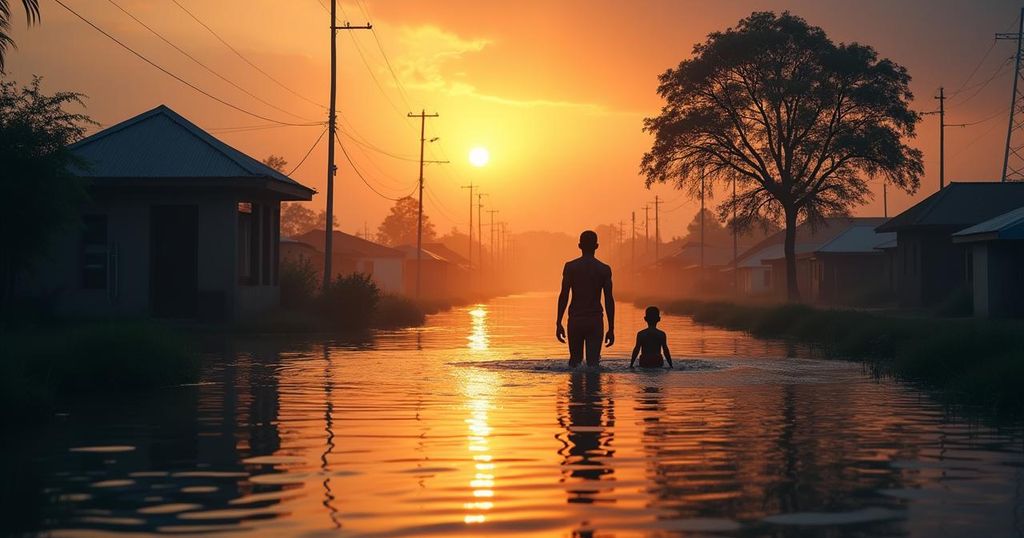Severe Flooding in West and Central Africa Claims Over 1,000 Lives and Displaces Thousands
Severe flooding in West and Central Africa has caused over 1,000 deaths and displaced at least 740,000 people, affecting more than 5 million across 16 countries. Chad, Niger, and Nigeria are experiencing the most significant impacts, with substantial damage to infrastructure and a looming food security crisis. The UN has allocated emergency funds, but further financial support is urgently required.
The United Nations (UN) reported that over 1,000 individuals have lost their lives and at least 740,000 have been displaced due to severe flooding impacting over 5 million people across West and Central Africa. The significant devastation is observed particularly in the nations of Chad, Niger, and Nigeria, which together account for more than 80% of the affected population, as highlighted by the UN Office for the Coordination of Humanitarian Affairs (OCHA). The flooding, intensified by heavy rainfall, has caused widespread damage to infrastructure, including homes, educational institutions, and healthcare facilities. Furthermore, approximately half a million acres of agricultural land have been rendered unusable, exacerbating the risk of food insecurity and malnutrition, especially in the regions of Chad and Niger. The deteriorating living conditions have also heightened the threat of waterborne diseases, such as cholera, particularly in Niger and Nigeria. In response to the ongoing crisis, Joyce Msuya, Assistant Secretary-General for Humanitarian Affairs and Deputy Emergency Relief Coordinator, has allocated $35 million to facilitate humanitarian efforts in Chad, Niger, Nigeria, the Democratic Republic of the Congo, and Congo. However, the UN emphasizes that further funding is critically needed to address the situation comprehensively. In Nigeria alone, Ms. Msuya has earmarked $5 million to provide food, clean water, and shelter for approximately 280,000 individuals, along with initiatives aimed at controlling potential cholera outbreaks. Alarmingly, the $927 million Humanitarian Response Plan for Nigeria is reported to be only 46% funded, indicating a significant gap in resources necessary to meet the urgent needs of the population.
The context of this humanitarian crisis arises from a combination of persistent heavy rainfall that has led to catastrophic flooding across West and Central Africa, affecting various societal sectors from health to agriculture. The situation has prompted the international community’s attention, highlighting the challenges of resource mobilization for disaster relief in regions already grappling with economic and health vulnerabilities. The effect of such disasters on food security and public health underscores the urgency for both immediate and long-term response strategies.
In summary, the floods in West and Central Africa have resulted in significant loss of life, widespread displacement, and extensive damage to critical infrastructure, necessitating urgent humanitarian assistance. The UN’s immediate financial allocations reflect a commitment to address the pressing needs of those affected; however, the continuing funding shortfall represents a critical challenge to effectively manage the ongoing crisis. The situation remains dire, with the potential for further deterioration if comprehensive support is not mobilized swiftly and substantially.
Original Source: www.aa.com.tr




Post Comment